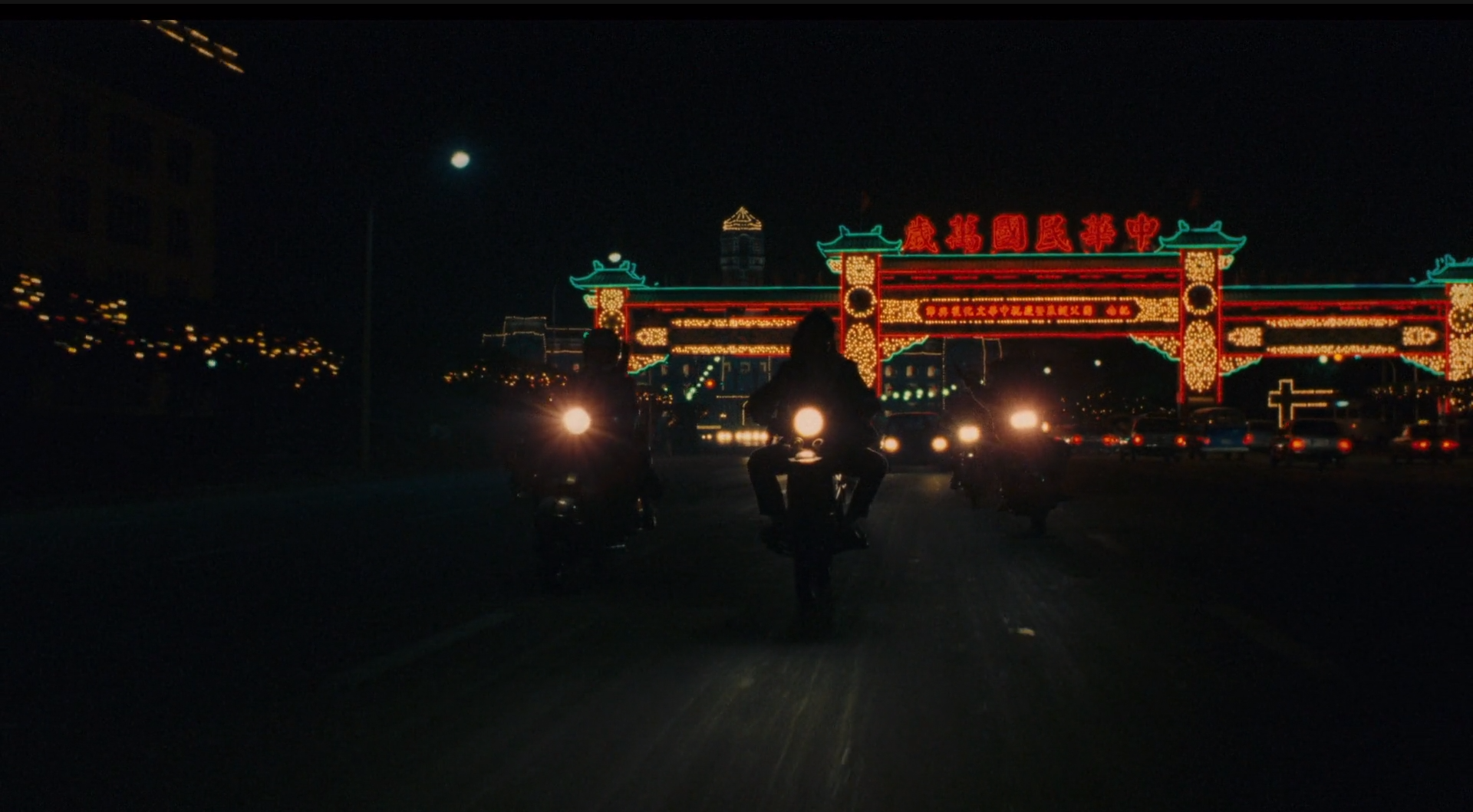Notes on Taipei Story
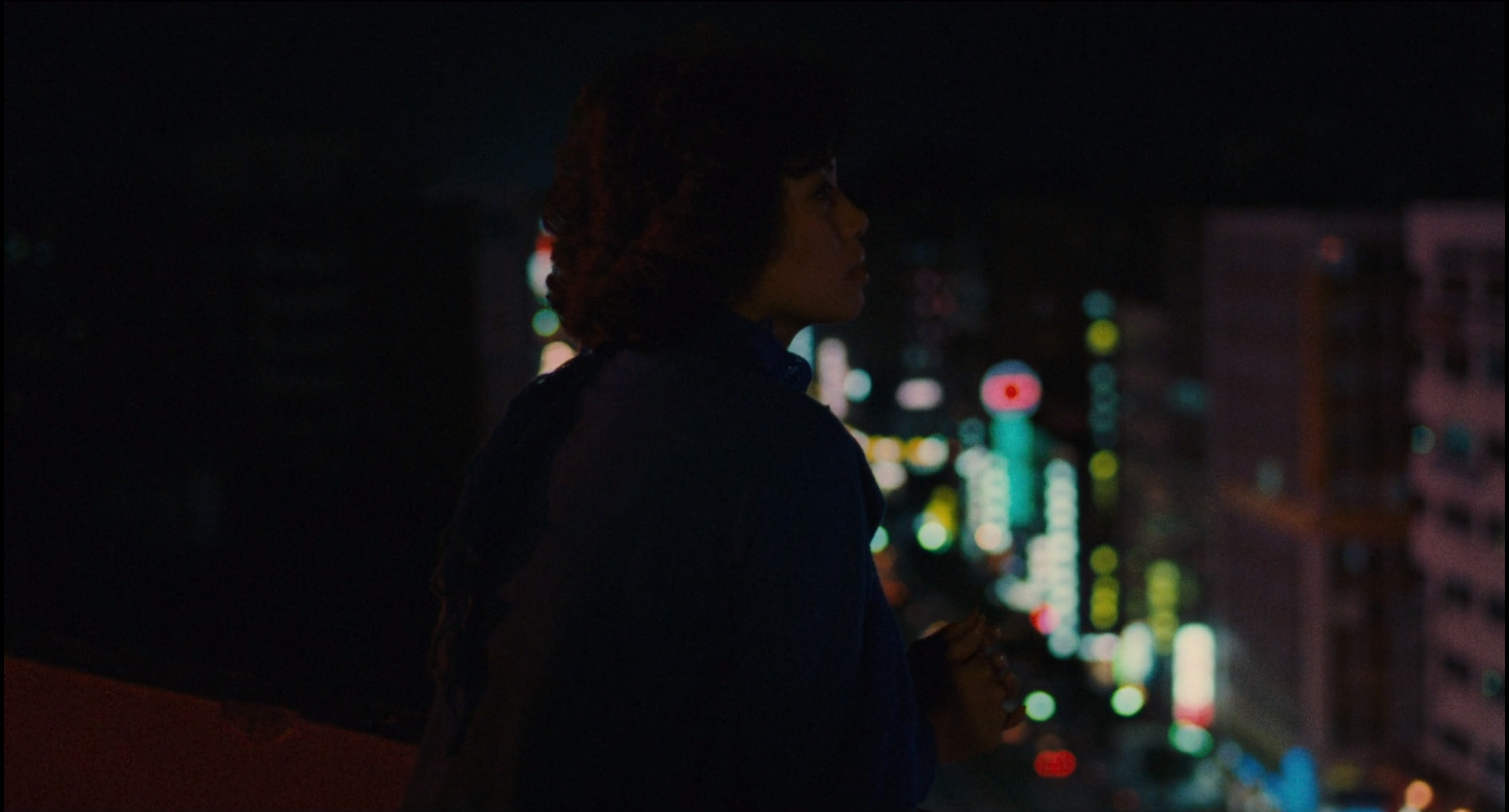
Edward Yang, the late Taiwanese director, is best known for A Brighter Summer Day (1991) and Yi Yi (2000). Both sprawling, multi-faceted films that run in excess of three hours, these tend to overshadow some of Yang's other work, including 1985's Taipei Story. While Taipei Story has a solid reputation of its own, as one of the first works of New Taiwanese Cinema to receive international attention, it seems to sit a tier below Yang's subsequent twin masterworks in the minds of many. Whether this is justified or not, consider this a much deserved Taipei Story appreciation post.
Yang's sophomore effort centers on a couple living in the titular city. Chin, a sunglass-sporting woman with a lush mane of curly black hair, works as an assistant at an architecture firm. She is fiercely devoted to Lung (played by Yang's friend, and fellow giant of Taiwanese cinema Hou Hsiao-hsien), a well-built, middle-aged man who has just returned from Los Angeles. Lung takes pride in his youth baseball playing days -- he seems to be best known for this among the friends and acquaintances among his generation, which include a local bartender, a real estate agent, and his aging former baseball coach Mr. Lai. Newly reunited at film's start, Chin and Lung make plans to soon get married, and afterwards head back to the States, where Lung would be a partner in his brother-in-law's prosperous import-export company.
It quickly becomes clear that things aren't so rosy for our central couple. The architecture firm that Chin works at faces lawsuits for an accident at one of its buildings, and has been bought up by another firm, which means restructuring. Chin's erstwhile boss, the generous Ms. Mei, has quit the company. Chin chooses to follow Ms. Mei out rather than face demotion. Meanwhile, Lung's fabric trading business is floundering. Additionally, after so much time apart, something has altered in Chin and Lung's relationship, in no small part due to Lung's suspicious behavior in visiting an old flame in Tokyo on his return trip from the States. More generally, however, this appears to be a symptom of Chin being more connected to the younger Taiwanese generation, while Lung is firmly entrenched in the middle generation. A strange distance has opened between them, a distance that gradually widens as the movie progresses.
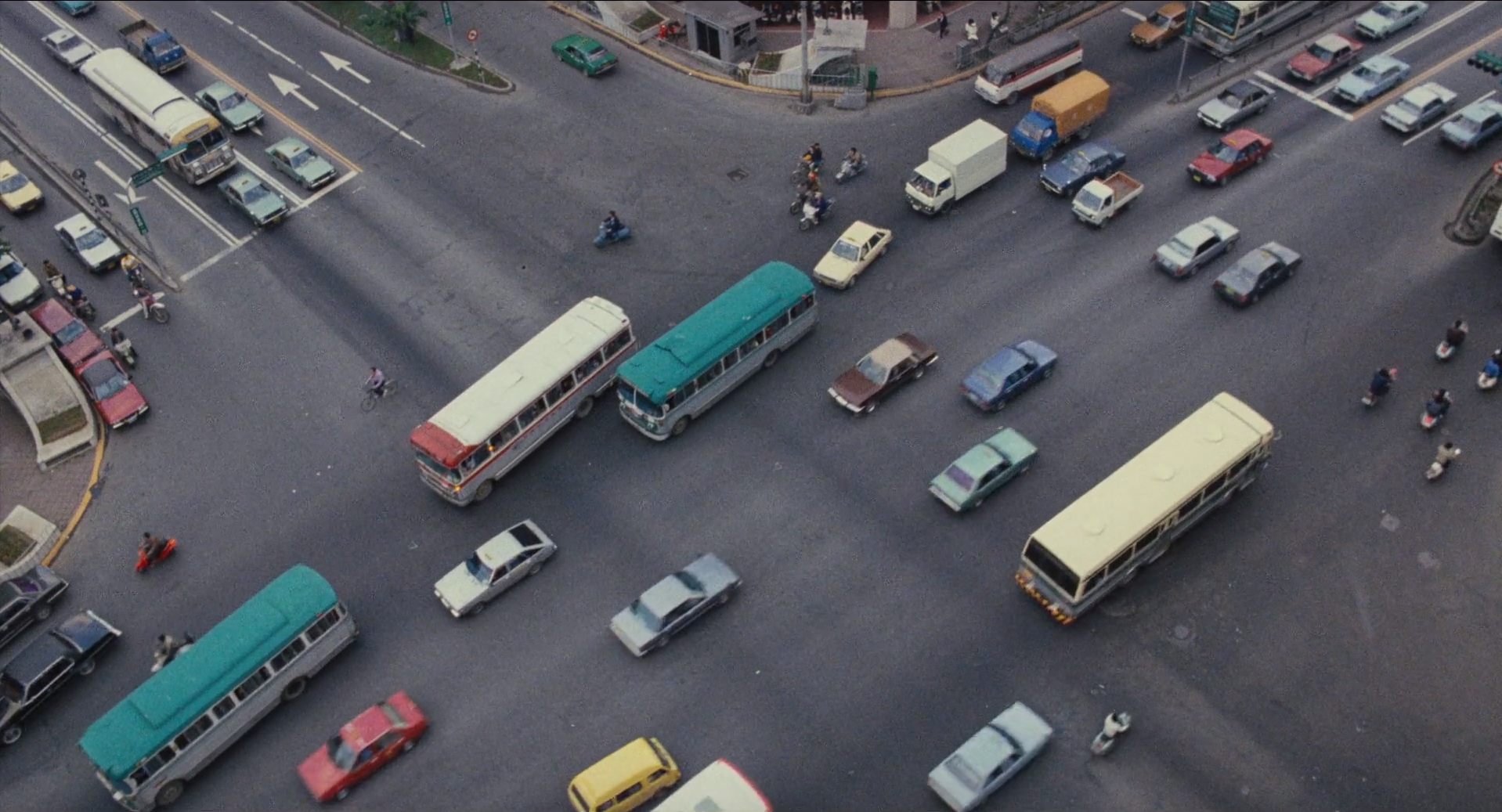
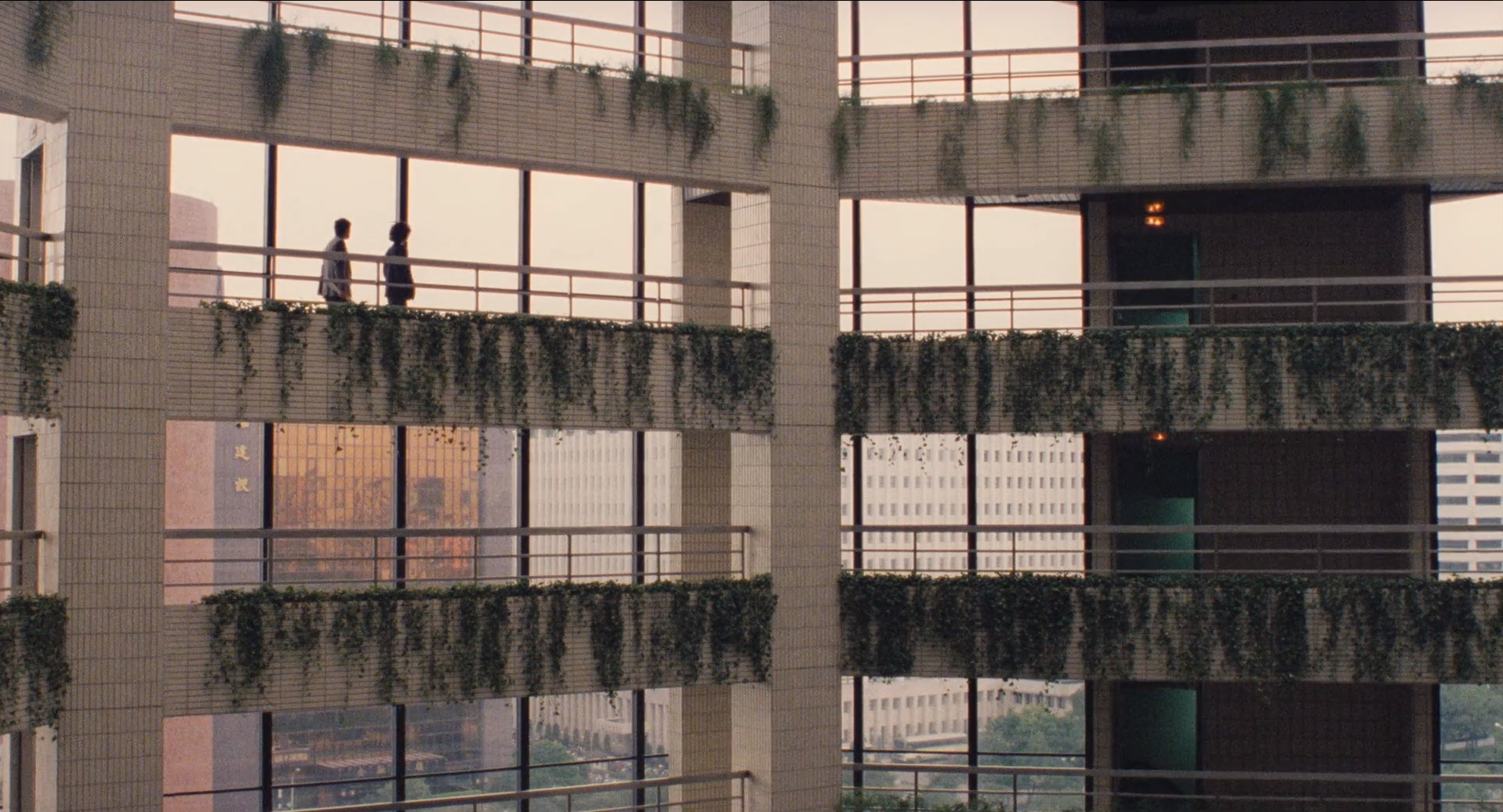
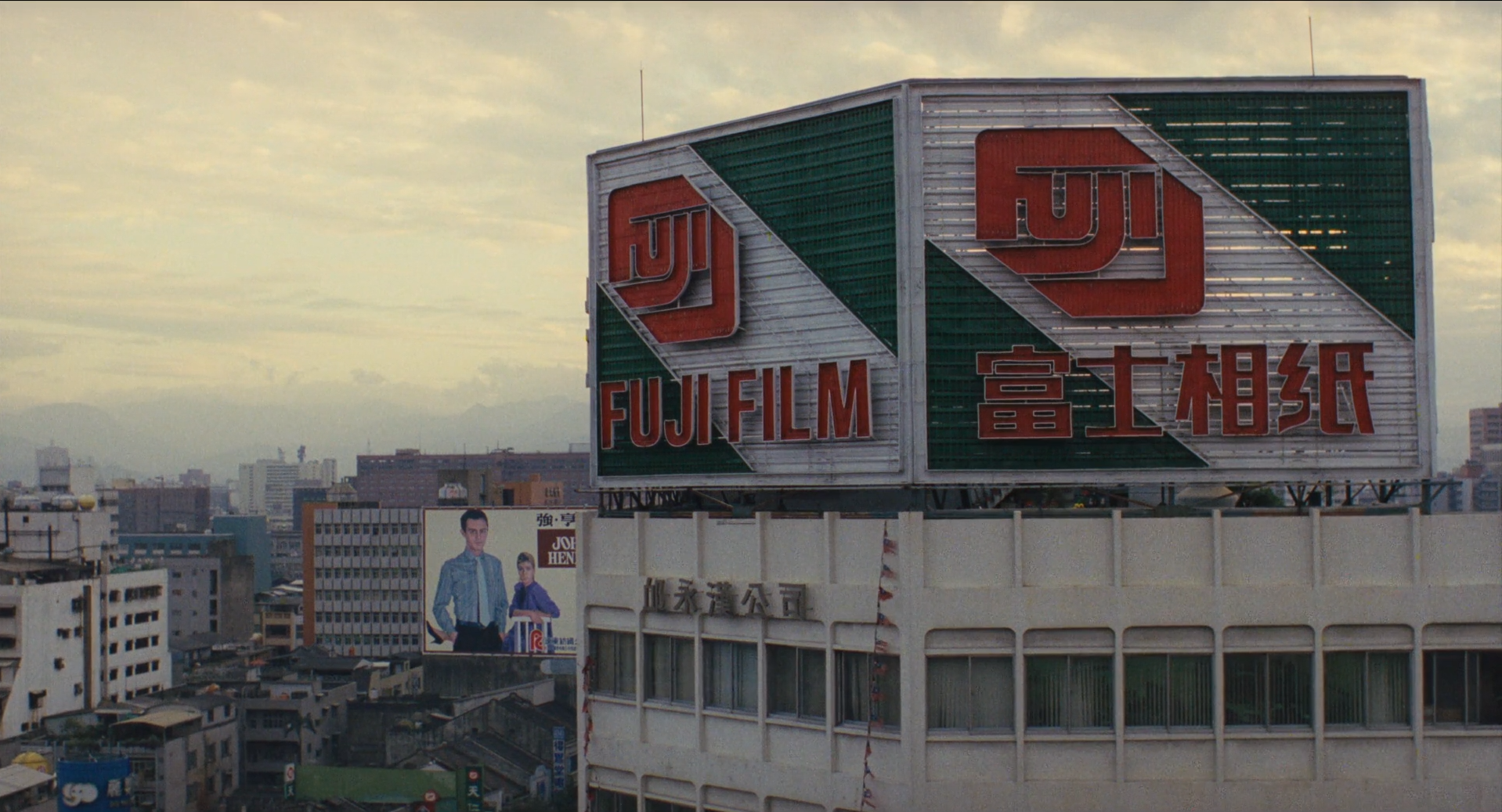
The Taipei of Taipei Story film is aggressively evolving, aggressively globalizing. Yang's cinematography, in depicting the wide-open spaces, sharp angles, and colorful yet oppressive geometries of the modernized city, recalls that of Tati's Playtime. Taipei is a city where it's increasingly difficult for one to assert their identity or find their place. Towards the beginning, Chin's co-worker, the architect Mr. Ke, encapsulates this sentiment when he remarks of Taipei's buildings, "They all look the same. Whether I'm involved or not seems less and less important." No amount of technology, sleek appliances, neon billboards, or the supposed close physical proximity among urban dwellers can mask the elusiveness of genuine human connection. This is an idea Yang would revisit in Yi Yi, and one that would form the thematic backbone of fellow Taiwanese auteur Tsai Ming-liang's craft.
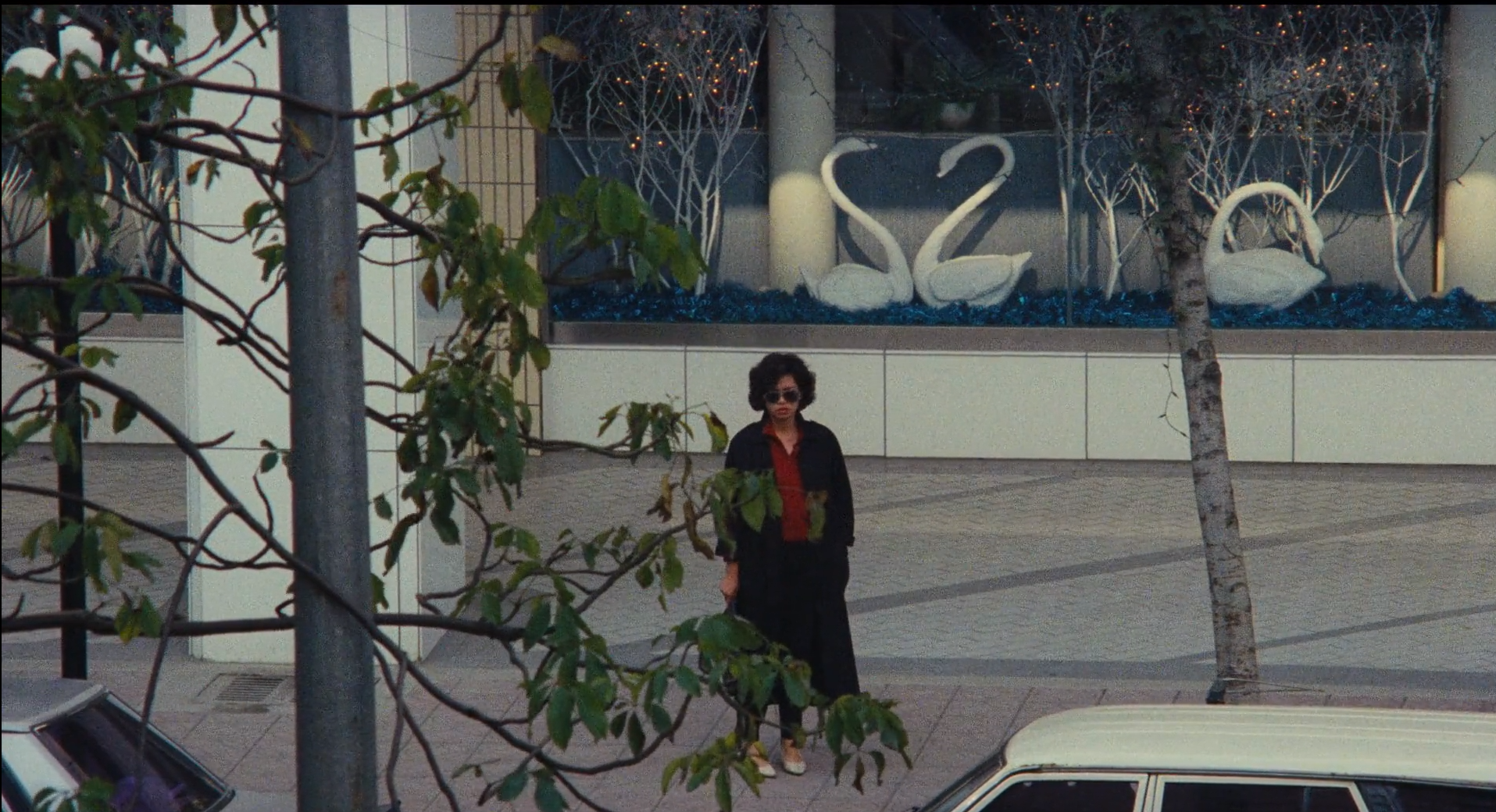
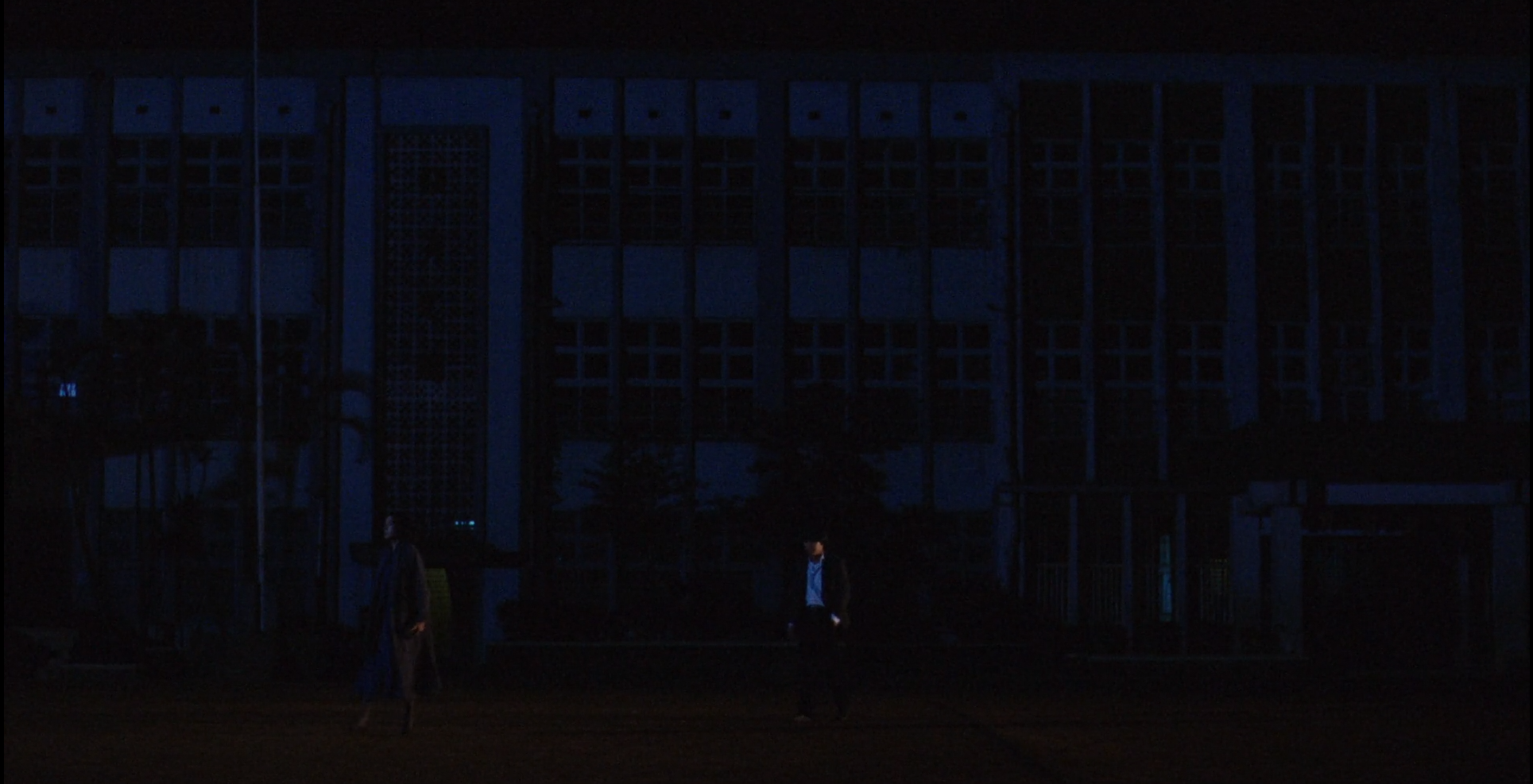
Urban listlessness and loneliness is underscored by wide shots of empty buildings and near-empty streets. Yang's characters, often shown in contemplation, always seem to have a million different things on their minds.
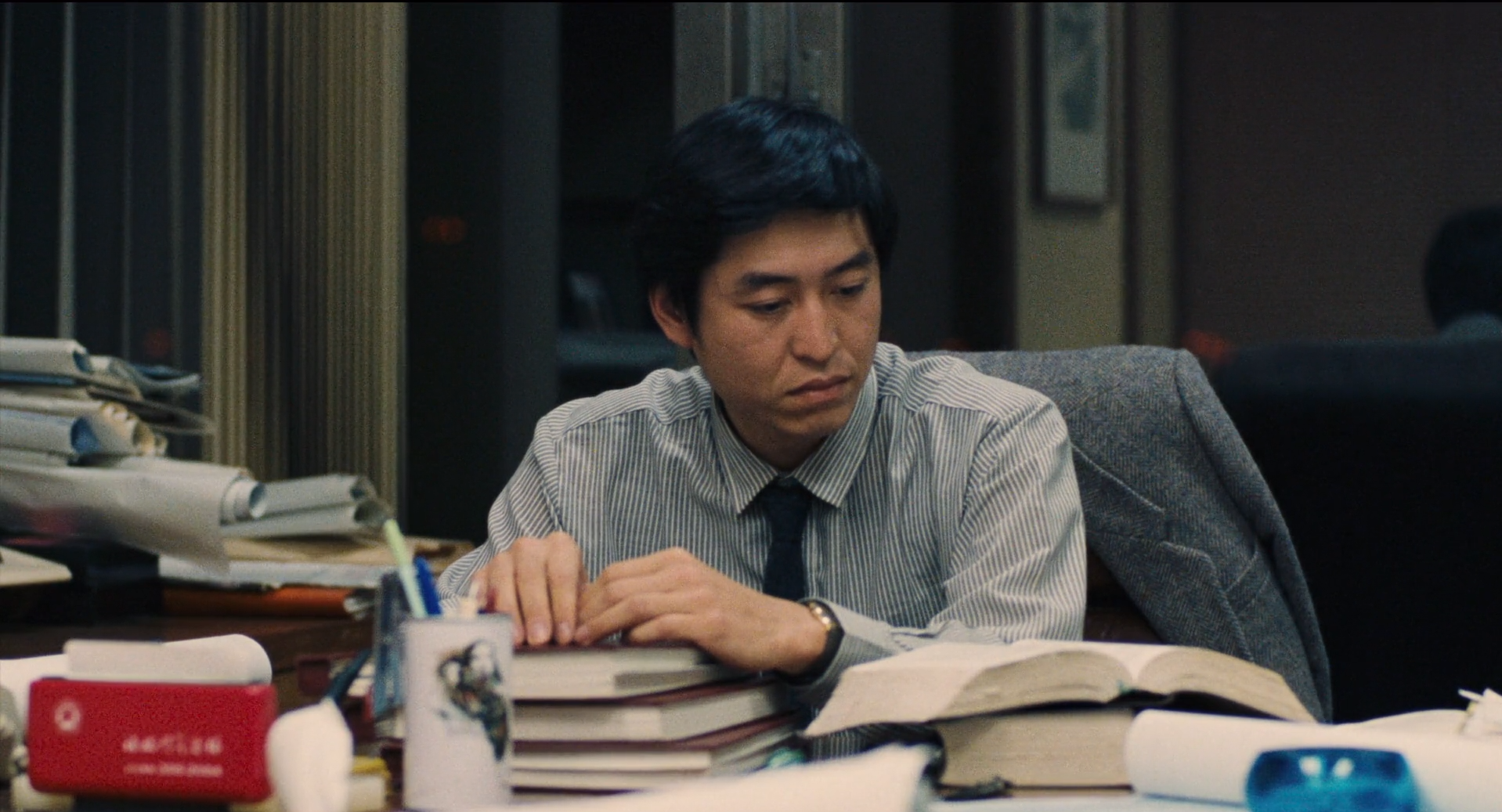
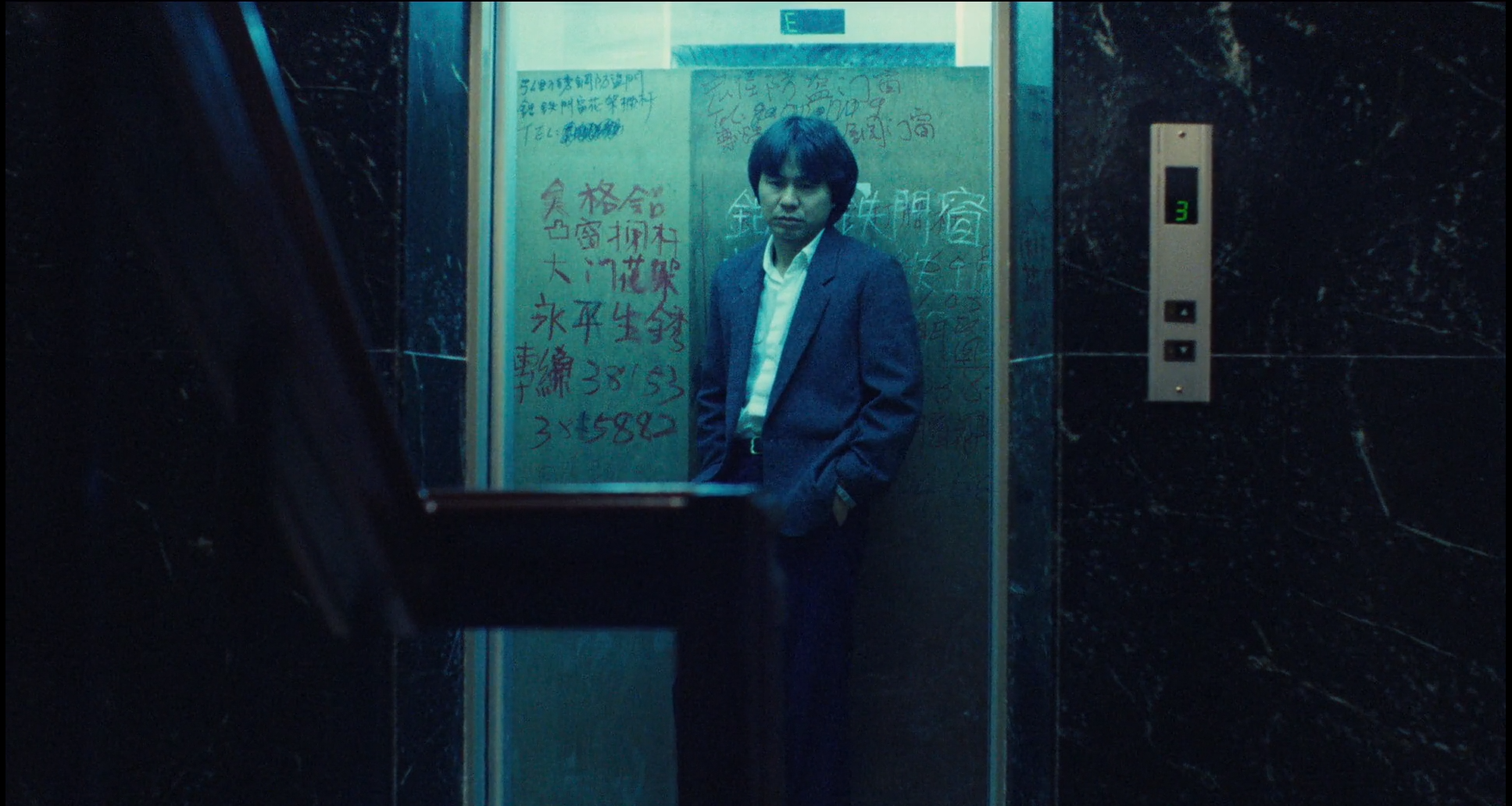
They suffer beneath the weight of their own existences. They all seem to be going through the motions -- life has clearly not delivered on its promises to them. The architect Mr. Ke laments his dissatisfying marriage. Lung's old flame Kwan has just completed a messy divorce. Lung's old baseball buddy Qin sadly tells of how he has to drive a taxi for days at a time to support his children and wife, who is addicted to gambling. Lung's plans to join his brother-in-law in Los Angeles fall through due to lack of cash. Yet despite the disappointments, Yang's characters are continually led on by opportunities to start anew, filled with an odd yet unmistakably human belief that the loneliness and emptiness in their lives must give way to something better. Chin in particular admits so much at the beginning when she says "I don't like being so pessimistic. Looking at things that way makes me sad." In this way, vacancy at times comes to signify new beginnings and infinite possibilities. Consider the shots of vacant interiors that bookend Taipei Story. Both carry a sense of optimism. In that opening scene, as Chin and Lung tour an unfurnished apartment unit, we see Chin espouse her vision about the life that she and her boyfriend will share in their new dwelling. In the final scene, Chin blankly stares out the window as Ms. Mei enthusiastically discusses the floorplan for her new office space.
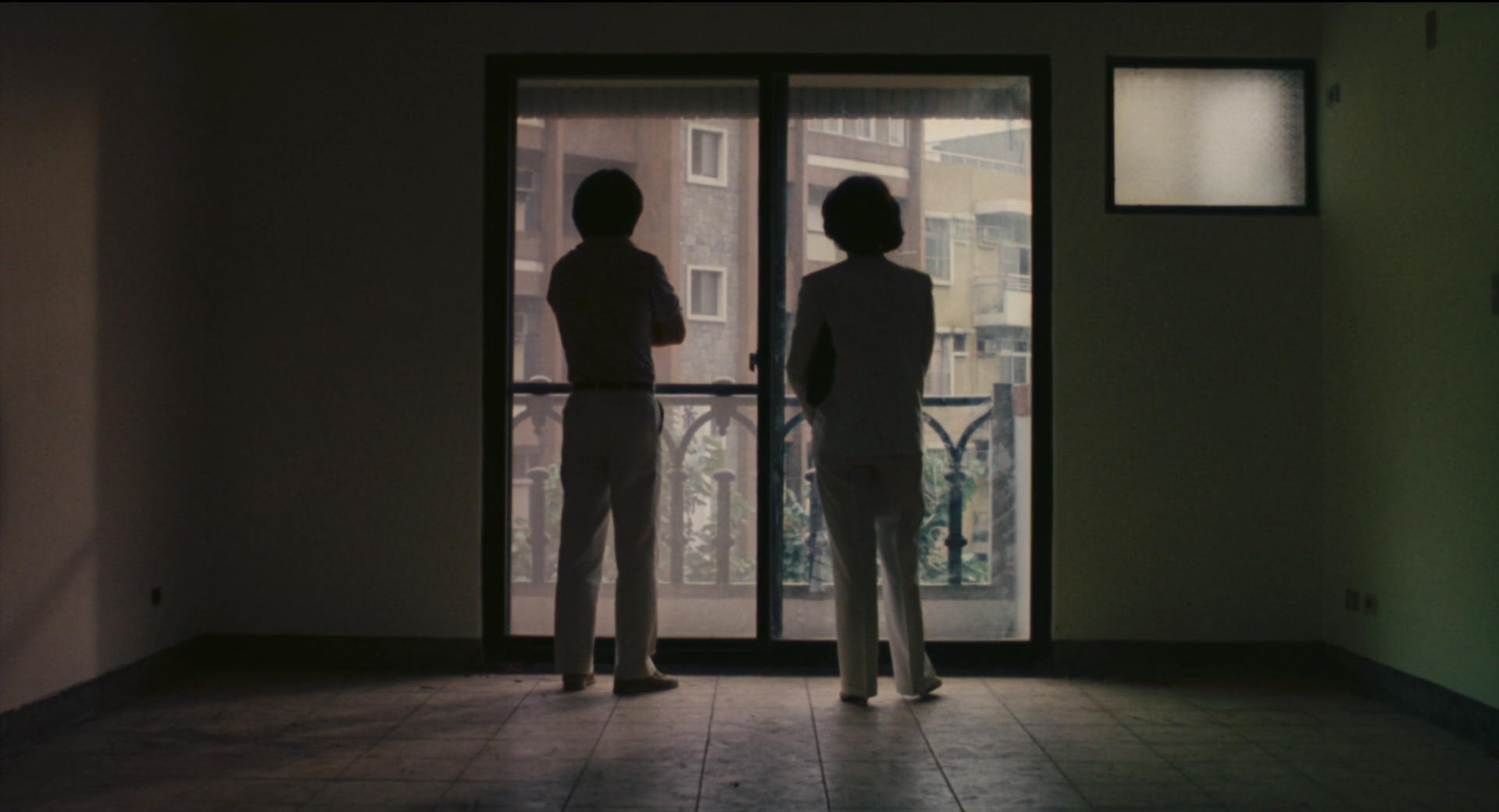
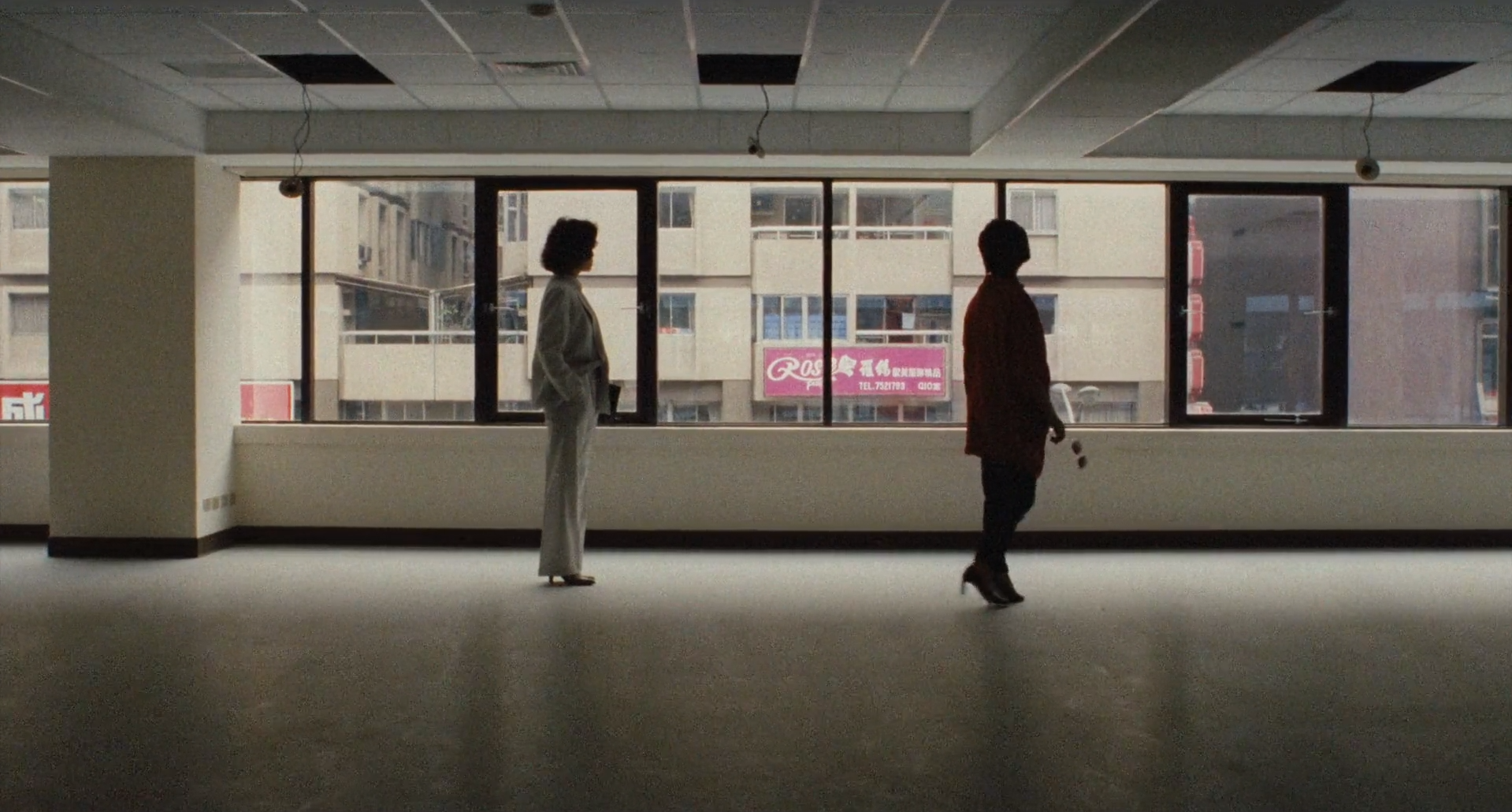
Such hopes turn out to be misguided. What makes Taipei Story such a devastating watch is that one by one, we see the hopes of the central characters snapped. In the Darwin-esque landscape of Yang's film, those who fail to adapt get left behind, and it becomes apparent that Lung and Chin have failed to adapt. Lung latches on to a "tough-guy" mentality that may have served him well in his younger baseball-playing days, but proves to be out of step in an age where college education and business savvy rule the day. As Kwan tells him, "This world isn't like your simple world of baseball. Everything's different now.", yet Lung finds himself unable to break out of his outdated mindset. The shot of Lung trying to hold his hand against a picture of a dancer's hand in Chin's apartment, but his hand not quite fitting with the image, is telling. So is Lung's final scene, in which he draws his final breaths next to a pile of discarded junk, drawing a cigarette as he fondly recalls his little league days.
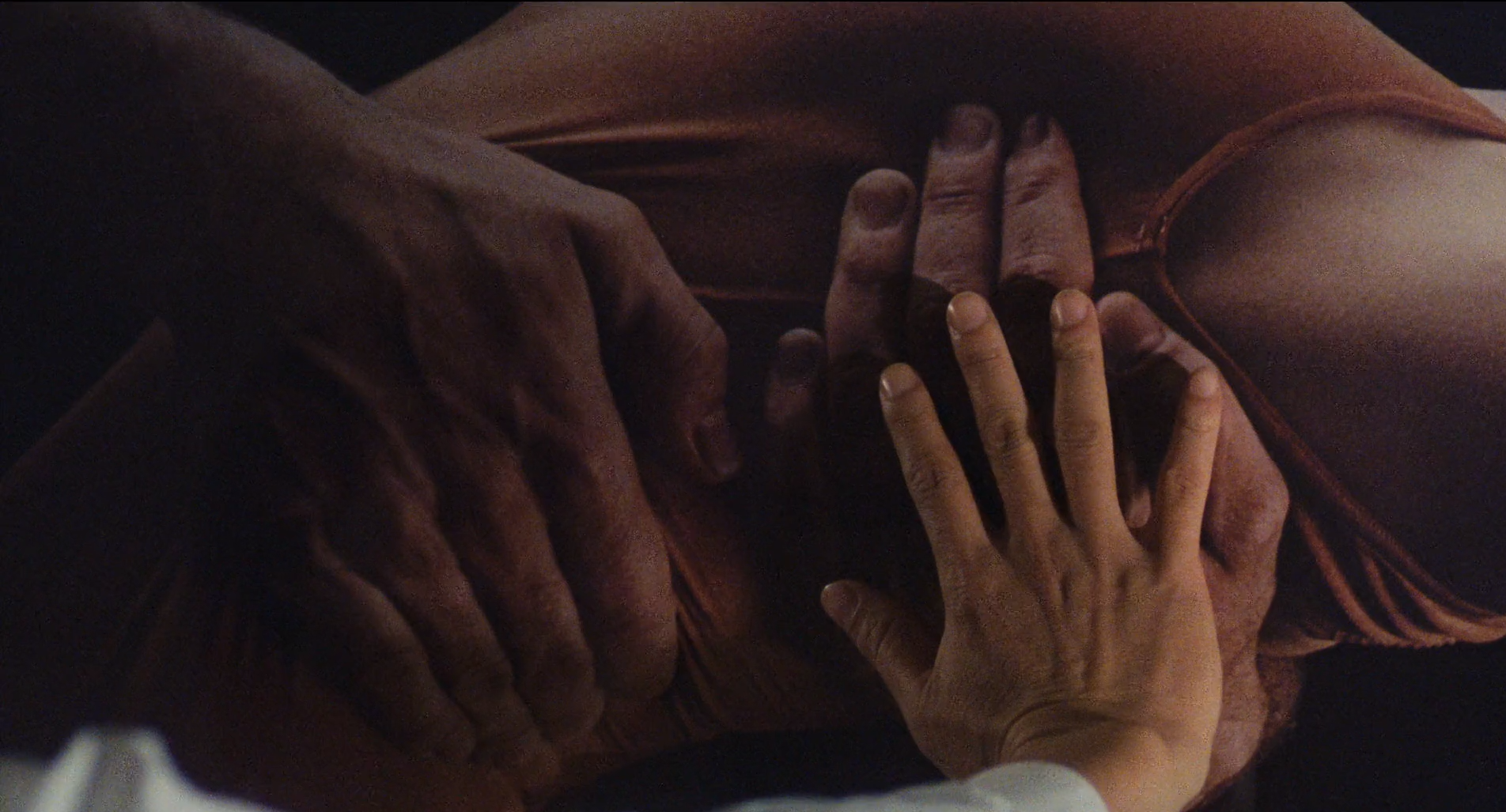
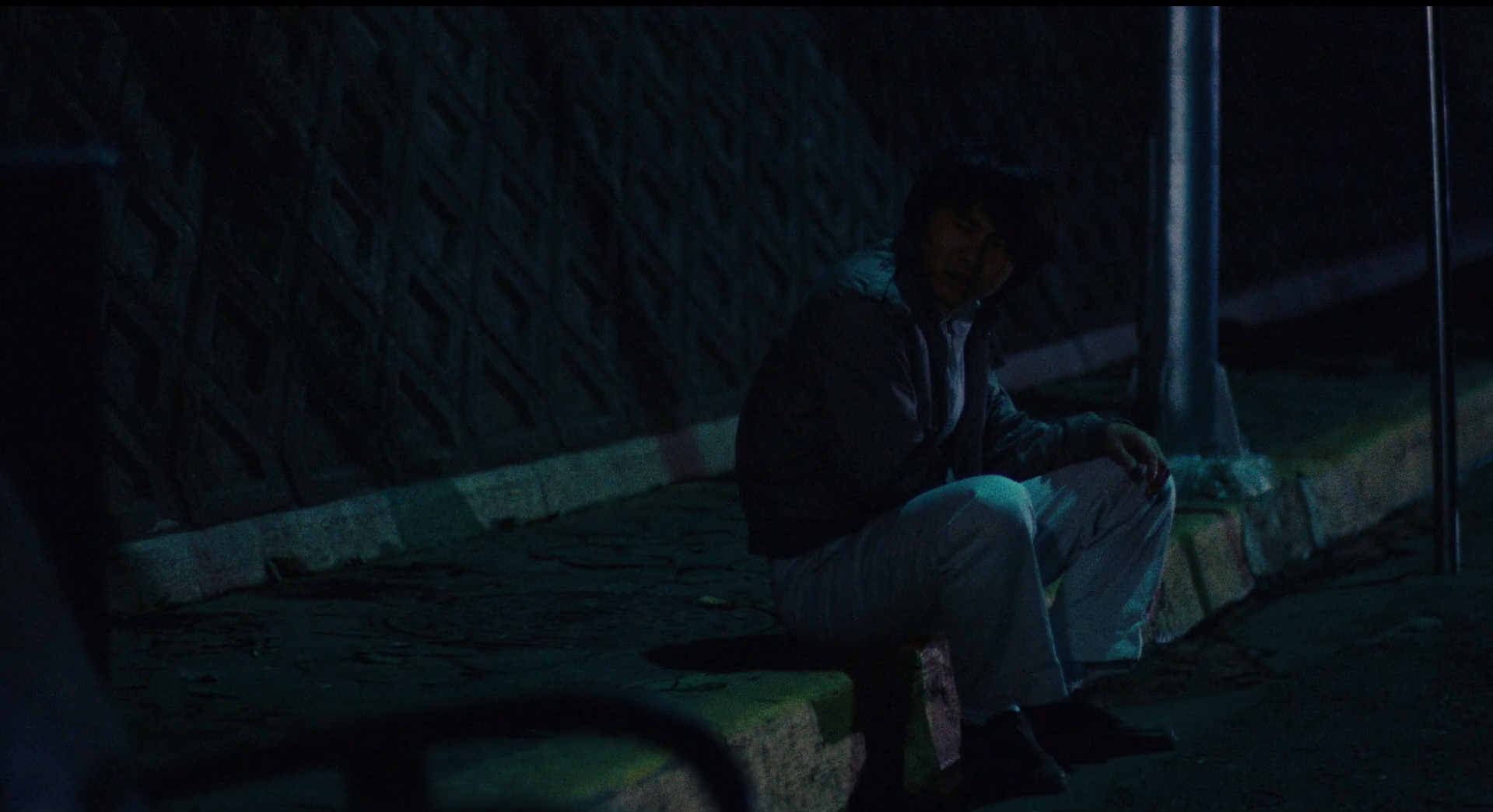
Lung, filled with his traditional image of stoic manlihood, is driven by a sense of deep loyalty to old friends, and a desire to show dominance over others, whether through physical takedown, or supporting others in need. He picks fights -- with Chin's yuppie friends, and with the young man on the motorcycle at the end. He scolds his old high school friend Qin for crying, even after Qin's wife has just took her own life. He lends money to Qin, and repeatedly to Chin's pitiful, once-abusive father, despite evidently not having the means to do so. And in his race to the bottom, he takes Chin -- who after all these years, still seems to hold a heavily romanticized view on Lung from her schooling days -- with him. The couple is cannibalized from both sides, by the older and younger generations alike. Lung, by Chin's father, as well as the young man on the motorcycle, and Chin, by her younger, free-spirited sister Ling, who coaxes money from her to fund a trip to Japan. Eventually, Lung comes to the grim realization that neither marriage to Chin, nor moving to the States (even if he could), would be a "cure-all". His death shortly after, at the hands of the motorcyle man, feels more like a mercy killing.
Taipei Story is a bleak picture of urban angst, modernization, and intergenerational dynamics. While quiet and rather abstract, Yang's film burns with an urgency that underscores a societal guard being changed. Look no further than the scene two-thirds through, of the biker gang riding beneath the portrait at the Chiang Kai-shek Memorial Hall. As they wordlessly tear through the empty night streets, we feel their exhilaration, their insatiable appetite for life's thrills. It's a warning shot, heralding both the arrival of this new generation, and a master of world cinema.
